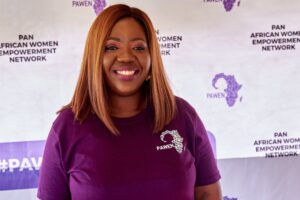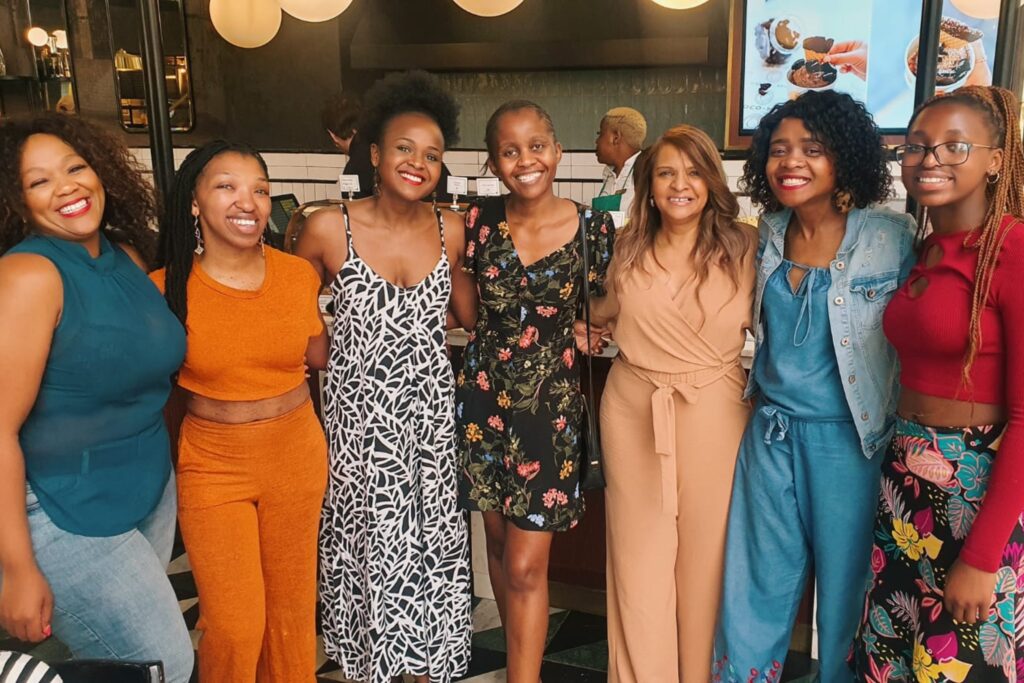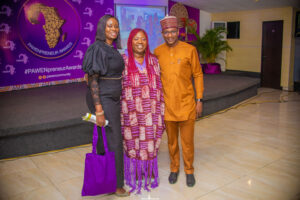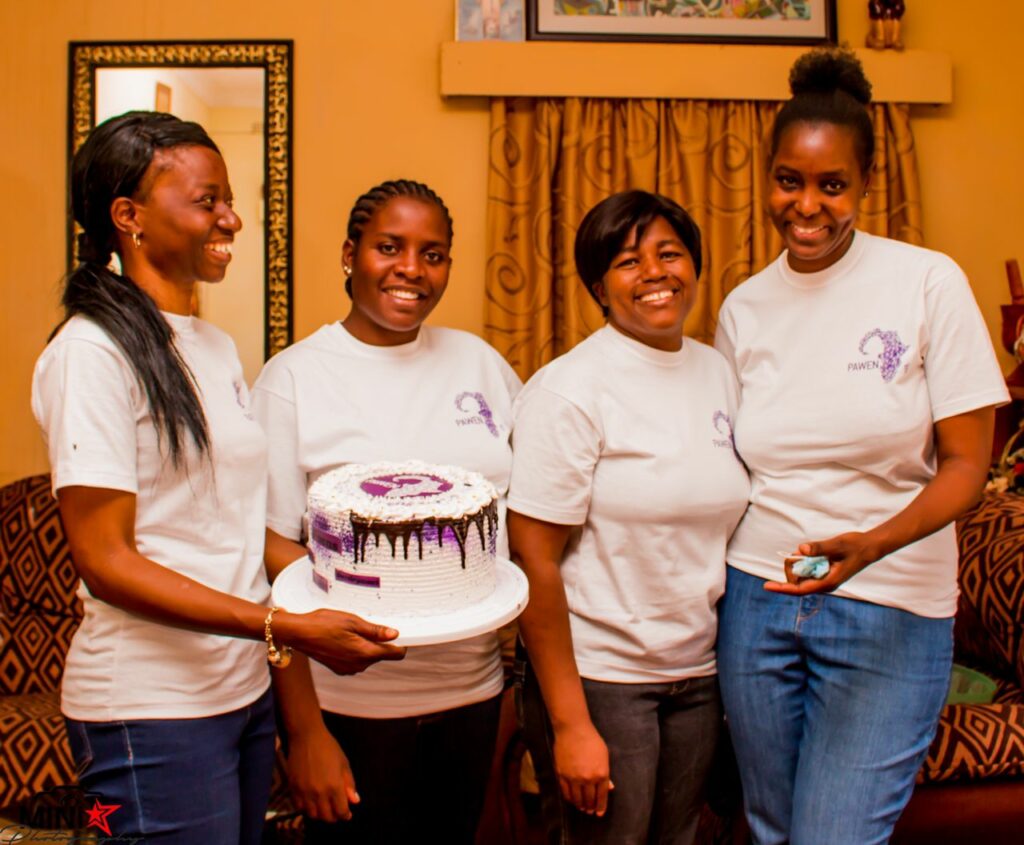1 out of every 3 Sub-Saharan African women are unemployed, UN.
“When women are empowered the entire community and the entire world benefits,” Oluwaseyi Tolulope Kehinde-Peters, Entrepreneur and Founder of PAWEN.
There is nothing more noble than to work to provide our loved ones with a good quality of life. Unfortunately, for the majority of women around the world, this is something unreachable simply because they are born female. This problem is tangible in Sub-Saharan Africa where 37.23% of women are unemployed, according to the World’s Women Report produced by the Statistics Division of the United Nations Department of Economic and Social Affairs. This lack of opportunities in the job market inspired Oluwaseyi Tolulope Kehinde-Peters to take steps to empower 1 million female African entrepreneurs which has the power to change the economic and social status in Africa.
 Oluwaseyi is a social entrepreneur and business strategist with a passion for driving change and empowering people to reach their full potential. She was born in Ibadan, a Southwestern town in Nigeria. Following in her father’s footsteps, she obtained a bachelor’s degree in Accounting from the University of Lagos in Nigeria and graduated with distinction from a master’s degree program in FinTech and Financial Markets from Nottingham Business School in England.
Oluwaseyi is a social entrepreneur and business strategist with a passion for driving change and empowering people to reach their full potential. She was born in Ibadan, a Southwestern town in Nigeria. Following in her father’s footsteps, she obtained a bachelor’s degree in Accounting from the University of Lagos in Nigeria and graduated with distinction from a master’s degree program in FinTech and Financial Markets from Nottingham Business School in England.
“My father was an accountant,” recalls Oluwaseyi. “I was good with numbers since I was young and he thought I could be an accountant so I studied accounting to make him happy. But I always knew that I didn’t want to be an accountant forever.”
While Oluwaseyi was a university student she was part of AIESEC, an organization aimed at helping young people to develop their leadership potential, and that had a crucial impact on her journey.
But soon after Oluwaseyi finished college she began working in Human Resources and would remain in the field of business for 20 years until she decided to change her path. She chose to pursue her true passion: empowering African women to become successful entrepreneurs and leaders.
“I worked from HR to strategy to business process transformation. I did everything,” says Oluwaseyi. “At some point, I was the managing director of an outsourcing firm. I was doing well. I was financially comfortable, but there I felt that sense of – ‘There’s more to life than my personal comfort’. Right? We are not here just to earn money and feel good and live a good life… There must be much more.”
Women's Unemployment in Africa
In 2024, the women’s unemployment rate in Africa reached 7.74% while men’s unemployment was at 6.48%. This is a considerable increase in unemployment for women from the 7.02% registered 10 years ago, according to Statista.
Furthermore, Statista released in 2022 the list of African countries with the highest female unemployment rate which includes Djibouti at 37.88%, followed by South Africa at 31.43%, Sudan at 30.17%, Gabon at 29.41%, and Libya at 26.67%, among others.
On the other hand, the World’s Women Report produced by the Statistics Division of the United Nations Department of Economic and Social Affairs noted that unpaid domestic and care work increased due to the COVID-19 pandemic affecting women in Northern Africa and Western Asia seven times more than men, keeping them out of the labor market. The report also indicated that only 47% of women participated in the labor market worldwide and this percentage decreased in Southern and Western Asia, as well as in Northern Africa where less than 30% of women participated in the labor market.

A Journey Inspired by Her Mother
All through her career, Oluwaseyi had been focused on helping entrepreneurs to build sustainable businesses. After two decades of working in the private sector, she decided to pursue her passion of helping African women to grow and maximize their potential. Inspired by her mother, a low-income teacher who became an entrepreneur in the energy sector but her company – unfortunately – didn´t succeed, Oluwaseyi got to work.
“I was raised under modest circumstances,” recalls Oluwaseyi. “My family faced numerous challenges, including financial hardship. Growing up, there were periods when we experienced hunger. I had a mother who struggled with business. In Nigeria, you’ll see local businesses that fail yet you have a foreigner that set up – the same type of business – and succeed. So I always wondered why.”
While working in Human Resourses, Oluwaseyi got to experience firsthand the challenges that women faced in their careers from imposter syndrome to not being given opportunities or even the constraints that women have just from having kids.
“Having gone through my mother’s struggle in business I thought about using my experience and knowledge to empower African female entrepreneurs and help them to succeed,” remembers Oluwaseyi. “So I decided to embark on what made me happy and that was when I created PAWEN.”
1 Million Female African Entrepreneurs
 In January 2020, Oluwaseyi founded the Pan African Women Empowerment Network (PAWEN) a non-profit, capability development edtech, aimed to help women across the African continent develop the competence, confidence, and connections they need to succeed as entrepreneurs or as career professionals. In the beginning, it was a one-woman operation that soon grew exponentially.
In January 2020, Oluwaseyi founded the Pan African Women Empowerment Network (PAWEN) a non-profit, capability development edtech, aimed to help women across the African continent develop the competence, confidence, and connections they need to succeed as entrepreneurs or as career professionals. In the beginning, it was a one-woman operation that soon grew exponentially.
“The first program we did was the Aspiring Entrepreneurs Program,” remembers Oluwaseyi. “That program is very dear to my heart because when we started it was supposed to be a pilot. I remember that I thought: ‘If I can just get fifty people to apply, I will know that I’m on the right track’. We didn’t do any marketing, I just put it up on my WhatsApp, Instagram, and Linkedin. And, guess what happened? We had 499 applications! It was amazing!”
After 3 years, PAWEN has become a nonprofit organization with 5 members who work full-time with a global faculty of 70 people and over 50 volunteers. Since its inception, PAWEN has partnered with several global and regional institutions to help over 2,500 African women from 39 countries start or scale their businesses. PAWEN was a 2022 Women’s Financial Inclusion Award nominee at the International Financial Inclusion Conference (IFIC).
“Each program is cohort-based. They all leverage on the cardinal elements of master classes, mentoring, coaching, peer learning, community and case study reviews, book reviews, and peer review sessions. So beyond all the structured learning that entrepreneurs get, they also obtain the benefit of being able to work with people. There’s a lot of learning, there’s a lot of bonding, there’s a lot of friendship. So it’s not just learning. We want the women to have a network where they can share their challenges and experiences and learn from each other. My goal with PAWEN is to empower at least 1 million women and to improve economic outcomes for one million African women,” says Oluwaseyi. “If we can improve and empower 1 million women, imagine the impacts that those 1 million women can have on other people, on the community, and the world at large, it gives me a sense of purpose.”

Reaching Out to The Pollination Project
In order to achieve the 1 million female African entrepreneurs empowered, Oluwaseyi began looking for funds to prepare, empower, teach, and support the next generation of 450 university students who are in their final year of college in Nigeria, Kenya, and South Africa to launch start-ups that will create jobs in their communities so she reached out to The Pollination Project.
“I was part of a program sponsored by the Bank of America and it was through their newsletter that I heard about TPP so I decided to apply. When I knew I was going to receive the grant I was very happy,” says Oluwaseyi. “The Pollination Project is very dear to my heart because this is the first-ever external funding we would get and that is a great boost.”
For Oluwaseyi, gathering the funds to keep this project going has been the most difficult task but the feeling that she is contributing to improve the quality of life for an entire generation makes her continue with the same enthusiasm and hope that her journey of kindness will also inspire her 3 children to make the world a more equitable place.
“I firmly believe that by equipping girls with entrepreneurship skills, coupled with guidance from seasoned entrepreneurs, we can elevate their confidence and outlook on life,” says Oluwaseyi. “My mission is to make a meaningful difference in the lives of one million women and girls during my lifetime. Thank you TPP for supporting people who create an impact in the world.”
Join Us
If you are inspired by this work and have an idea for a project that addresses an issue that you are passionate about, we’d like to invite you to submit an application and together we will build a better, more compassionate future!
If you would like to support the work of more heartivists like this around the world, please visit our donation page and be a part of the change today!


